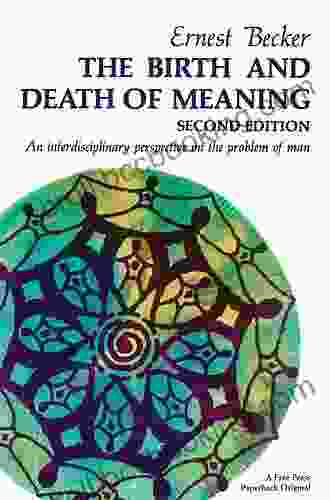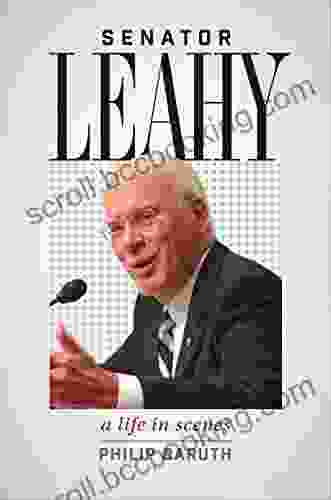The Birth and Death of Meaning: Unraveling the Enigma of Our Linguistic Existence

Language, the intricate web of words and symbols we weave, holds an unparalleled power to shape our perception of reality, ignite our imaginations, and connect us with the broader tapestry of human experience. Yet, within this linguistic realm lies a profound paradox: words, the building blocks of meaning, can also be the harbingers of its demise.
4.6 out of 5
| Language | : | English |
| File size | : | 2285 KB |
| Text-to-Speech | : | Enabled |
| Screen Reader | : | Supported |
| Enhanced typesetting | : | Enabled |
| Word Wise | : | Enabled |
| Print length | : | 242 pages |
In his groundbreaking work, "The Birth and Death of Meaning," renowned philosopher and linguist John Searle embarks on a thought-provoking exploration of the enigmatic relationship between language and meaning. Through a meticulous analysis of linguistic constructs and their impact on our cognitive processes, Searle unveils the intricate mechanisms that govern the creation and dissolution of meaning, offering a fresh perspective on the very essence of human existence.
The Genesis of Meaning: Unveiling the Creative Power of Language
At the heart of Searle's inquiry lies the question: how do words acquire meaning? He argues that meaning is not an inherent property of words themselves but rather emerges through the social interactions and conventions within which language is used. Words, in this sense, are mere symbols that derive their significance from the shared understandings and interpretations of a linguistic community.
Searle illustrates this concept through the example of the word "dog." While the word "dog" universally represents a four-legged, canine creature, its exact connotation may vary depending on cultural and contextual factors. For instance, in some cultures, the word "dog" carries a positive connotation, associated with loyalty and companionship, while in others, it may evoke negative associations, such as aggression or uncleanliness. It is through this interplay of social conventions and individual experiences that words acquire their specific meanings.
The Mortality of Meaning: Deconstructing the Fragility of Linguistic Constructs
Just as language has the power to create meaning, it also holds the potential to extinguish it. Searle contends that the meanings we ascribe to words are not immutable but rather subject to erosion and transformation over time. This process of "semantic death" occurs when the social conventions and interpretations that once sustained a word's meaning fade into obscurity.
Searle cites the example of the word "knave," which once carried a neutral connotation, signifying a young man or servant. However, over time, the word acquired negative associations, eventually becoming synonymous with deceit and trickery. This semantic shift highlights the dynamic and ever-evolving nature of language, where words can undergo profound transformations in their meanings and connotations.
Language and the Human Condition: Exploring the Interdependence of Thought and Expression
Searle's work extends beyond the realm of linguistics, delving into the profound implications of language for our understanding of the human condition. He argues that language is not merely a tool for communication but an integral part of our cognitive processes, shaping the way we perceive and interact with the world around us.
By analyzing the linguistic structures we employ, Searle contends that we can gain insights into the fundamental workings of human thought. For instance, the use of tenses in language reveals our concept of time and our ability to reflect on past events and anticipate future ones. Similarly, the use of pronouns and deixis exposes the social and interpersonal dimensions of our linguistic interactions.
The Enigma of Meaning: Embracing the Paradox of Linguistic Existence
Ultimately, Searle's exploration of the birth and death of meaning leads to a profound realization: language is both the creator and destroyer of meaning. It is through language that we create shared understandings and establish a sense of Free Download in the world, but it is also through language that these meanings can be contested, transformed, and ultimately lost.
This paradox lies at the heart of our linguistic existence, reminding us of the dynamic and ever-changing nature of our world. As we engage with language, we are both participants in the creation and dissolution of meaning, navigating a linguistic landscape that is constantly evolving and reshaping.
: The Enduring Legacy of "The Birth and Death of Meaning"
John Searle's "The Birth and Death of Meaning" stands as a seminal work in the field of philosophy of language, challenging our assumptions about the nature of meaning and its relationship to human experience. Through its rigorous analysis and thought-provoking insights, Searle's work has left an enduring legacy, inspiring generations of scholars and sparking ongoing debates about the enigmatic relationship between words and the world they describe.
Whether you are a seasoned philosopher, a student of linguistics, or simply an individual curious about the profound impact of language on our lives, "The Birth and Death of Meaning" is a must-read. It is an invitation to embark on an intellectual journey, to question the very foundations of our linguistic existence, and to embrace the paradox that lies at the heart of our communication and understanding.
4.6 out of 5
| Language | : | English |
| File size | : | 2285 KB |
| Text-to-Speech | : | Enabled |
| Screen Reader | : | Supported |
| Enhanced typesetting | : | Enabled |
| Word Wise | : | Enabled |
| Print length | : | 242 pages |
Do you want to contribute by writing guest posts on this blog?
Please contact us and send us a resume of previous articles that you have written.
 Book
Book Novel
Novel Page
Page Chapter
Chapter Text
Text Story
Story Genre
Genre Reader
Reader Library
Library Paperback
Paperback E-book
E-book Magazine
Magazine Newspaper
Newspaper Paragraph
Paragraph Sentence
Sentence Bookmark
Bookmark Shelf
Shelf Glossary
Glossary Bibliography
Bibliography Foreword
Foreword Preface
Preface Synopsis
Synopsis Annotation
Annotation Footnote
Footnote Manuscript
Manuscript Scroll
Scroll Codex
Codex Tome
Tome Bestseller
Bestseller Classics
Classics Library card
Library card Narrative
Narrative Biography
Biography Autobiography
Autobiography Memoir
Memoir Reference
Reference Encyclopedia
Encyclopedia Ronald B Tobias
Ronald B Tobias Gosho Aoyama
Gosho Aoyama Eric Little
Eric Little Phil Robertson
Phil Robertson Frederick Jackson Turner
Frederick Jackson Turner Michael P Nordvall
Michael P Nordvall James Branch Cabell
James Branch Cabell Michael Vassallo
Michael Vassallo Eric J Wittenberg
Eric J Wittenberg Eric Pleska
Eric Pleska Steve Coll
Steve Coll D K Hood
D K Hood Yogesh K Soni
Yogesh K Soni Kobe Bryant
Kobe Bryant Stephanie Izard
Stephanie Izard Johnny B Truant
Johnny B Truant Ernst Bergen
Ernst Bergen Sharon Stone
Sharon Stone Eric Gill
Eric Gill Lelia O V Hinton Crowders
Lelia O V Hinton Crowders
Light bulbAdvertise smarter! Our strategic ad space ensures maximum exposure. Reserve your spot today!
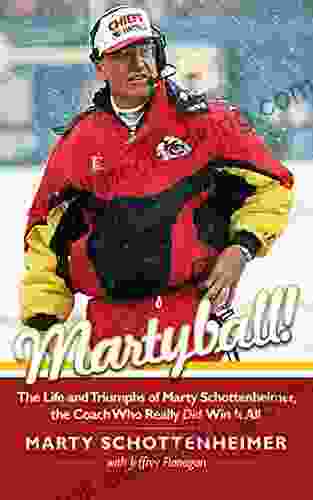
 Connor MitchellThe Life and Triumphs of Marty Schottenheimer: The Coach Who Really Did Win...
Connor MitchellThe Life and Triumphs of Marty Schottenheimer: The Coach Who Really Did Win...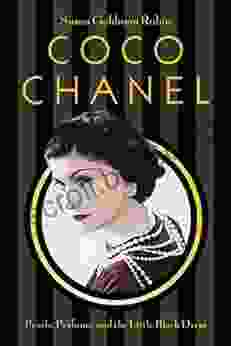
 W. Somerset MaughamPearls, Perfume, and the Little Black Dress: A Journey Through Timeless Style
W. Somerset MaughamPearls, Perfume, and the Little Black Dress: A Journey Through Timeless Style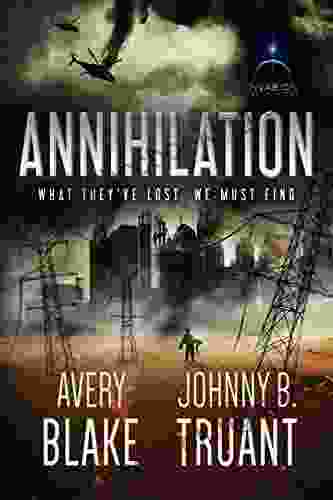
 Theodore MitchellAnnihilation: Alien Invasion by Johnny Truant - A Sci-Fi Adventure That Will...
Theodore MitchellAnnihilation: Alien Invasion by Johnny Truant - A Sci-Fi Adventure That Will... Dennis HayesFollow ·4.1k
Dennis HayesFollow ·4.1k Dalton FosterFollow ·18.9k
Dalton FosterFollow ·18.9k Jeffrey HayesFollow ·10.6k
Jeffrey HayesFollow ·10.6k Kurt VonnegutFollow ·6.6k
Kurt VonnegutFollow ·6.6k Duane KellyFollow ·7.5k
Duane KellyFollow ·7.5k Gavin MitchellFollow ·2.5k
Gavin MitchellFollow ·2.5k Jay SimmonsFollow ·2.2k
Jay SimmonsFollow ·2.2k Jarrett BlairFollow ·8.4k
Jarrett BlairFollow ·8.4k

 Roland Hayes
Roland HayesMagda: A Mother's Love, A Daughter's Redemption - A...
Immerse Yourself in the Captivating True Story...
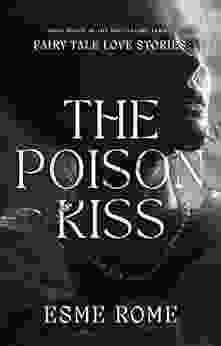
 Spencer Powell
Spencer PowellSnow White Retold: A Tale of Love, Magic, and...
Once upon a time, in...
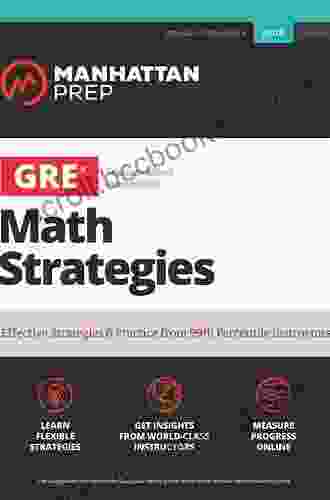
 Jake Powell
Jake PowellMaster the SATs with Effective Strategies from 99th...
The SATs are a challenging exam,...
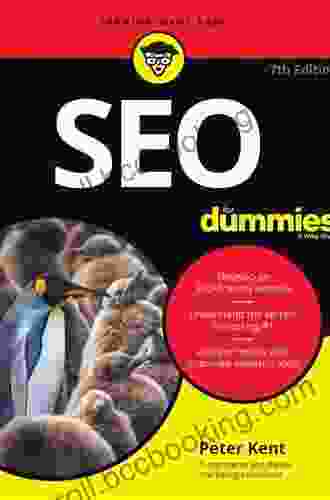
 Brian Bell
Brian BellSEO for Dummies: Unlock the Secrets to Search Engine...
In today's digital...
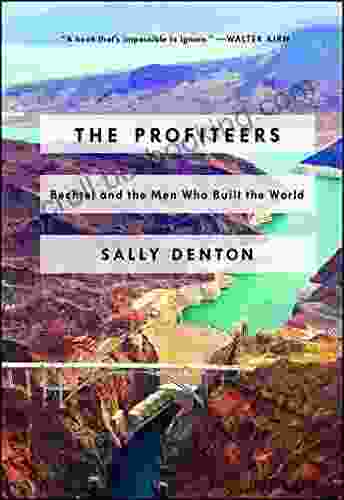
 Jaylen Mitchell
Jaylen MitchellBechtel: Unveiling the Unsung Heroes Who Built the World
In the annals of global infrastructure, the...
4.6 out of 5
| Language | : | English |
| File size | : | 2285 KB |
| Text-to-Speech | : | Enabled |
| Screen Reader | : | Supported |
| Enhanced typesetting | : | Enabled |
| Word Wise | : | Enabled |
| Print length | : | 242 pages |


